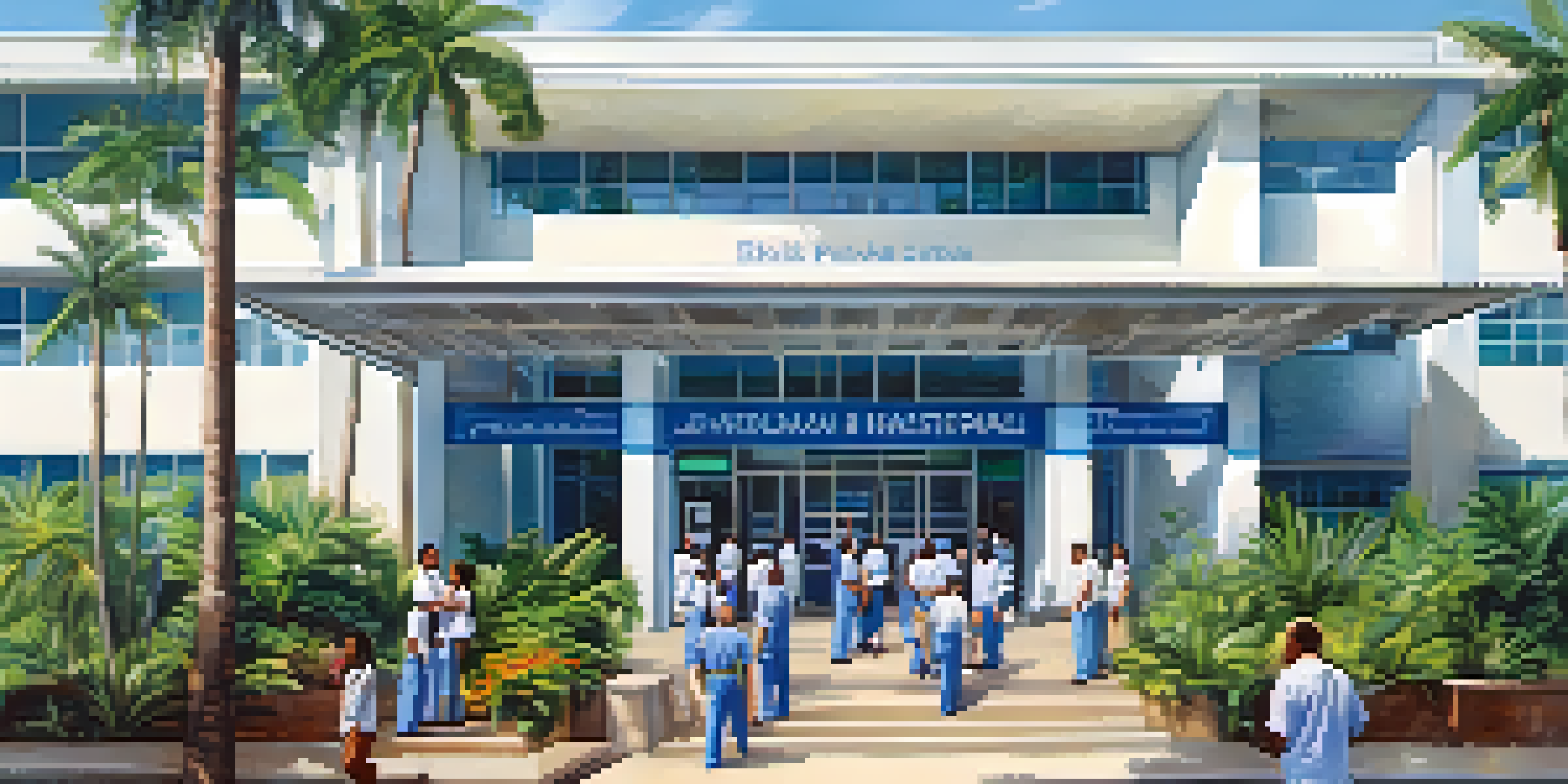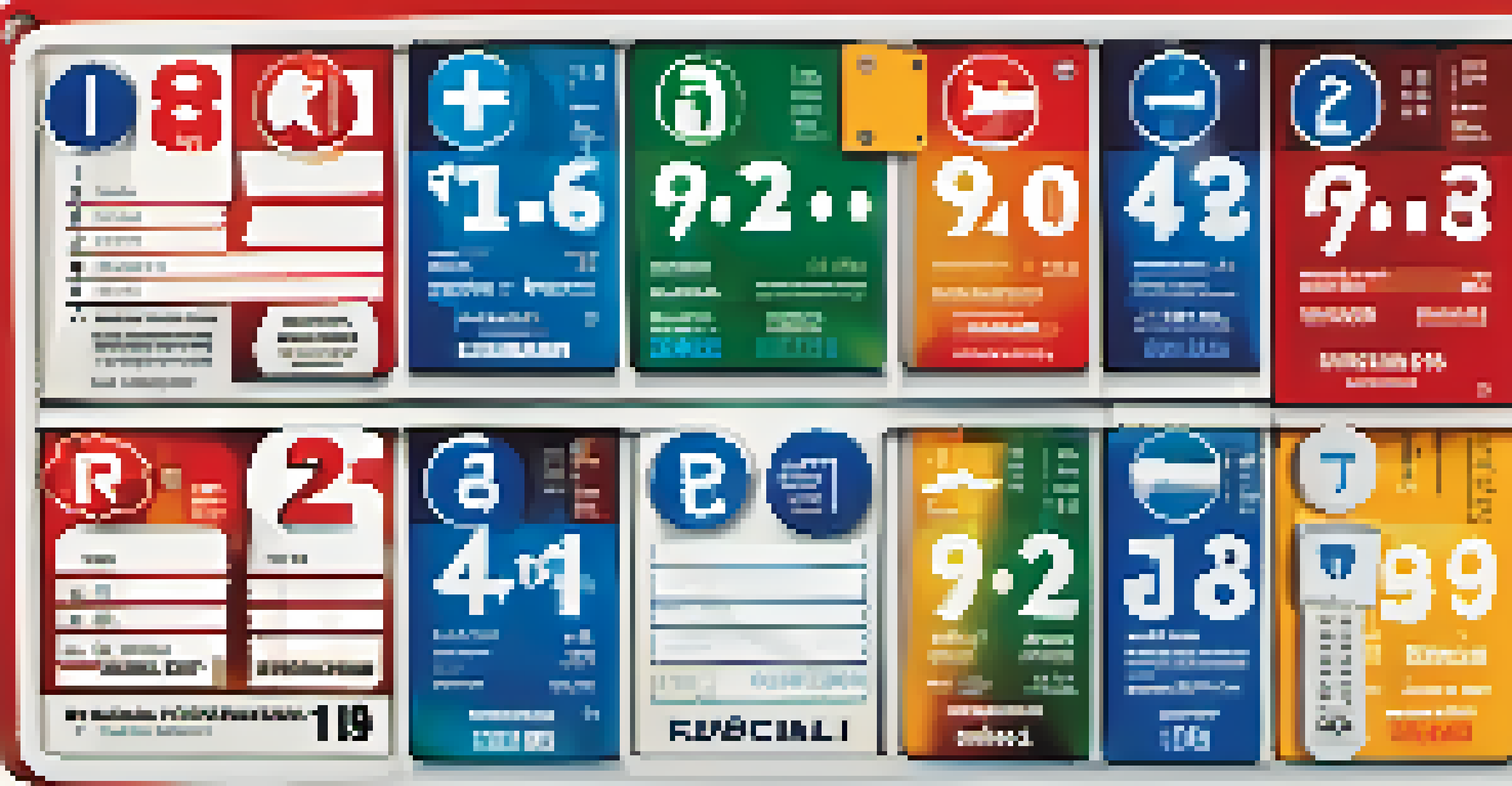How to Handle Medical Emergencies in Brazil

Understanding the Brazilian Healthcare System
Brazil has a unique healthcare system that combines public and private services. The Sistema Único de Saúde (SUS) provides free healthcare for all citizens and residents, but the quality can vary significantly. For travelers, knowing how to navigate this system can be crucial during a medical emergency.
The greatest wealth is health.
In urban areas, public hospitals may be overwhelmed, which can lead to longer wait times. Conversely, private hospitals often provide quicker, more comfortable care, but they can be costly. It's advisable for visitors to consider travel insurance that covers medical emergencies, especially if they plan to seek private care.
Familiarizing yourself with local healthcare options can save valuable time in an emergency. Research nearby hospitals or clinics before your trip, and keep any necessary contact information handy. This preparedness can help ensure you receive prompt medical attention when needed.
Emergency Numbers to Remember
In Brazil, the general emergency number is 192, which connects you to emergency medical services. It's essential to memorize or have this number easily accessible during your stay. Calling 192 will dispatch an ambulance to your location, but be prepared to provide details about your situation and your exact location.

For police assistance, you can dial 190, and for fire emergencies, the number is 193. Knowing these numbers can help you act quickly in various situations. Keep in mind that English may not be widely spoken by emergency responders, so having a basic understanding of Portuguese can be beneficial.
Know Emergency Numbers in Brazil
Memorizing key emergency numbers like 192 for medical help can significantly aid in timely assistance during a crisis.
Additionally, local hotels often have staff who can assist you in case of an emergency. Don’t hesitate to ask them for help or guidance on contacting medical services. They can provide valuable support and help bridge any language barriers.
How to Communicate Your Needs
Effective communication is vital in medical emergencies, especially if you're in a non-English speaking country. Learning a few key phrases in Portuguese can go a long way in ensuring you receive the help you need. Phrases like 'Eu preciso de ajuda' (I need help) and 'Chame uma ambulância' (Call an ambulance) can be lifesavers.
In the middle of difficulty lies opportunity.
If you find yourself in a situation where you can't communicate effectively, try to remain calm and use gestures to convey your needs. Pointing to injuries or showing relevant items, like medication, can help medical personnel understand your situation better. Having a translation app or a pocket phrasebook can also be handy.
In crowded areas, don't hesitate to ask locals for assistance. Brazilians are generally friendly and willing to help. By communicating clearly and calmly, you can facilitate a faster response to your emergency.
Bringing Your Medical Information
Before traveling to Brazil, it's wise to prepare a summary of your medical history, including allergies, ongoing treatments, and medications you take. This information can be crucial for healthcare providers in case of an emergency. Consider carrying this summary in both English and Portuguese.
Having a list of your medications, along with their generic names, can also assist doctors who may not recognize brand names. If you have any chronic conditions, make sure to highlight them clearly. This level of preparation can help ensure that you receive appropriate care tailored to your needs.
Prepare Medical Information Ahead
Carrying a summary of your medical history and medications can ensure appropriate care during emergencies.
Additionally, consider wearing a medical alert bracelet if you have serious conditions. This simple piece of jewelry can provide critical information to responders, even if you are unable to communicate. Being proactive about your health can make a significant difference in emergency situations.
Knowing Common Medical Facilities
Familiarizing yourself with local medical facilities can ease anxiety in emergencies. Major cities like São Paulo and Rio de Janeiro have many hospitals, but their quality can vary. Researching reputable hospitals ahead of time ensures you're aware of where to go if something happens.
For minor issues, you might consider visiting a pharmacy, as they often have trained staff who can provide advice and over-the-counter medications. Many pharmacies in Brazil can assist with basic healthcare needs, which can save you time and money.
If you're traveling to rural areas, the availability of medical facilities may be limited. In such cases, ensure you have a plan for accessing care or transport to a nearby city. Being informed and prepared can significantly reduce stress during a medical emergency.
Travel Insurance: A Must-Have
Travel insurance is essential for anyone visiting Brazil, especially for medical emergencies. It can cover unexpected medical expenses, evacuation costs, and even repatriation if necessary. Before purchasing insurance, check the coverage details to ensure it meets your specific needs.
Many travel insurance policies also offer 24/7 assistance, which can be invaluable in emergencies. This service can help you locate nearby medical facilities and provide guidance on how to access care. Having this support can alleviate some of the stress that comes with navigating a foreign healthcare system.
Travel Insurance is Essential
Having travel insurance can provide crucial support and coverage for unexpected medical expenses while in Brazil.
Always keep your insurance information handy, including the policy number and the contact details for your provider. In case of an emergency, knowing who to call for assistance can make a significant difference in how quickly you receive care.
Staying Calm During Emergencies
In any emergency, staying calm is crucial. Panic can cloud judgment and make it harder to think clearly about your next steps. Take a few deep breaths and remind yourself that help is available, which can help you focus on getting the assistance you need.
If you're with someone who's injured or unwell, your calm demeanor can positively influence their state of mind. Reassure them that you're seeking help and that everything will be okay. Keeping a positive attitude can help maintain morale during stressful situations.

Remember, it's okay to ask for help from bystanders or locals. They may have valuable insights or can assist you in calling for help. By working together, you can navigate the situation more effectively and ensure that everyone remains safe.